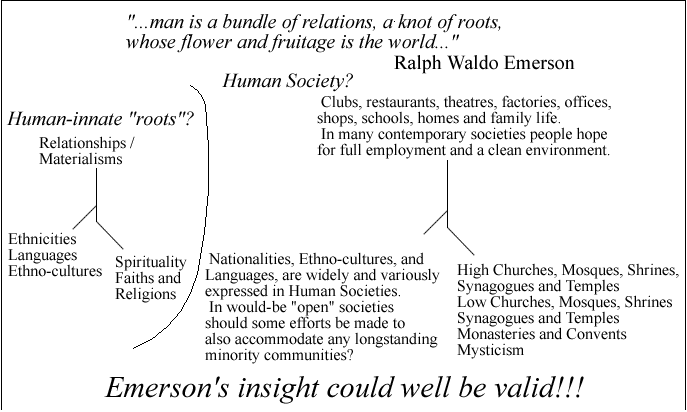Charles Darwin, Herbert Spencer and the ~
'The survival of the fittest' quotation
Darwin wrote about species being engaged in a competitive Struggle for Existence. This struggle being seen, by Darwin, as primarily a struggle for food to support growth, life, and the generation of young individuals to continue the species in question.
The actual term - the survival of the fittest - however, was actually fully attributed by Darwin himself to another source:-
"I have called this principle, by which each slight variation, if useful, is preserved, by the term Natural Selection, in order to mark its relation to man's power
of selection. But the expression often used by Mr. Herbert Spencer of the Survival of the Fittest is more accurate, and is sometimes equally convenient."
Darwin was so taken with Spencer's catchy phrase that he did, in fact, use it, as just quoted, in the introduction to chapter four, about " Natural Selection, or the Survival of the Fittest ", of a later (1869) fifth edition of his "The Origin of Species".
There are many entertaining and instructive quotations about, or attributable to, Charles Darwin:-
For instance as a young man of sixteen his father said to him:-
"You care for nothing but shooting, dogs and rat-catching, and you will be a disgrace to yourself and all your family."
Darwin was keenly interested in Natural History as a young man and his Autobiography mentions
one particular beetle hunt in detail:-"I will give a proof of my zeal: one day on tearing off some old bark, I saw two rare beetles and seized one in each hand; then I saw a third and new kind, which I could not bear to lose, so that I popped the one which I held in my right hand into my mouth. Alas it ejected some intensely acrid fluid, which burnt my tongue so that I was forced to spit the beetle out, which was lost, as well as the third one".
A particularly revealing Charles Darwin quote is, however, a very significant one which is to be found in a confidential letter of 11 January, 1844 to a fellow scientist named Joseph Hooker.
In this letter Darwin, speking about how he had spent his time after his voyaging on HMS Beagle, wrote that:-
"I have been now ever since my return engaged in a very presumptuous work & which I know no one individual who wd not say a very
foolish one.- I was so struck with distribution of Galapagos organisms &c &c &c with the character of the American fossil mammifers,
&c &c that I determined to collect blindly every sort of fact, which cd bear any way on what are species.- I have read heaps of agricultural
& horticultural books, & have never ceased collecting facts- At last gleams of light have come, & I am almost convinced (quite contrary to
opinion I started with) that species are not (it is like confessing a murder) immutable. Heaven forfend me from Lamarck nonsense of a
"tendency to progression" "adaptations from the slow willing of animals" &c,-but the conclusions I am led to are not widely different
from his-though the means of change are wholly so- I think I have found out (here's presumption!) the simple way by which species
become exquisitely adapted to various ends.- You will now groan, & think to yourself 'on what a man have I been wasting my
time in writing to.'- I shd, five years ago, have thought so.-
This letter features, in an informative context, on two of our pages which consider Darwin's development of
an audacious new theory in terms of his own personal backgound and still-Christian culture of Victorian England.
Many interesting quotations from his Autobiography and letters are used by way of illustration on both these pages.
Links are provided below, one deals more generally with the development of his Theory of Evolution and the other deals more so with the tensions arising from Darwin's living in a Christian environment. Darwin actually spent several years at Cambridge University with the explicit view of gaining a university degree prior to training to be a minister of religion. Despite this early burst of faith he also being sufficiently scientifically curious and speculative as to later arrive at his theory on the Origin of Species.

